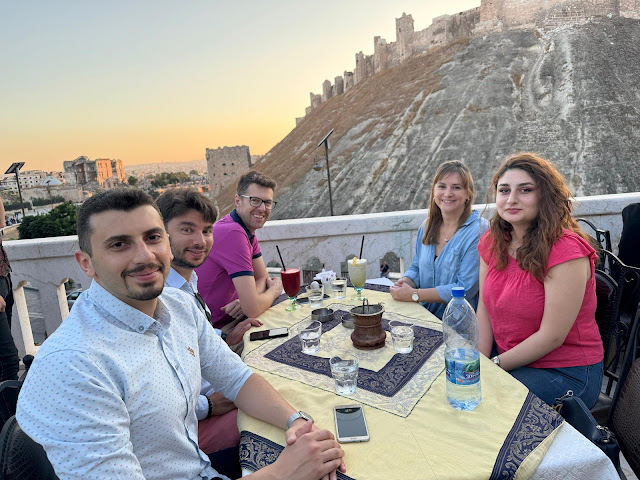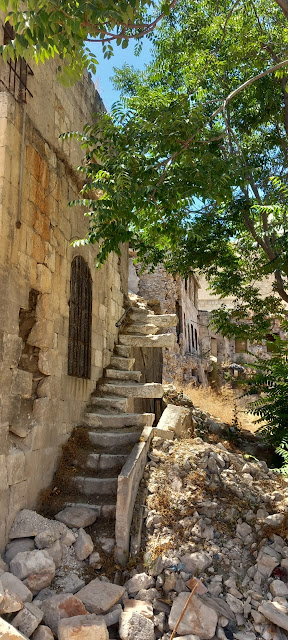Back to Nottingham
Hello!
It has been a long time since our last post (sorry), and we are now 1 week away from heading home. Our time in Aleppo has been unforgettable. The opportunity to become emerged in Syria for a year is an incredible blessing, and there are so many moments and people we will remember with a smile.
The country is very different to other places we have travelled to – a desert country that comes alive in the winter months when the ground finally gets enough water to turn green. But primarily a hot country where people endure long summer months. Aleppo is a city that retains a huge amount of beauty and charm, and yet has evidence of devastating fighting in many parts where buildings are abandoned to ruin and formerly busy streets are now silent. Even in the parts that the war did not reach, the economic downturn has taken effect. The poverty of everyday people is severe, a lot of businesses have long since gone, and people struggle for their daily bread and necessities.
For us, we have been delighted and frustrated in equal measure in temporarily becoming part of the Middle East. The hospitality and generosity of people has been overwhelming, and many people have been so kind to us. And we have made many mistakes, often from ignorance. There are deep cultural differences between us and our colleagues, some of which have helped us work together well, but also have created challenges. We have learnt again that you cannot know or assume anything about another person, especially when you do not share a lifetime of sameness. The ‘cultural iceberg’ is true – the obvious and superficial observable differences really are only a tiny hint of what lies underneath.
From a work perspective, the restrictions that are in force in Syria cause real issues with fulfilling our intentions to deliver help and aid to people who need it. It can be difficult to try to initiate effective projects and activities that will bring relief to people when balancing relationships with donors, staff, managers and local government. And the motivations of people working in the Humanitarian sector can be very mixed. Some people apply for Humanitarian work because of a deep longing to be part of bringing some relief to people most in need, and some because it is a good job. You can imagine the tensions this can create - we have faced some of them this year.
Steve and I have learnt a lot of lessons. We now know a lot more about which electrical items are power-hungry (literally) and how to preserve our small 1.5 Amp battery, and how to drive in a really Syrian (AKA crazy) way. We have learnt how to accept hospitality and ask for help, and we have made friends from all over the world. We have adjusted to a Friday/Saturday weekend and to sleeping through the call to prayer. And we will always treasure these memories.






Comments
Post a Comment